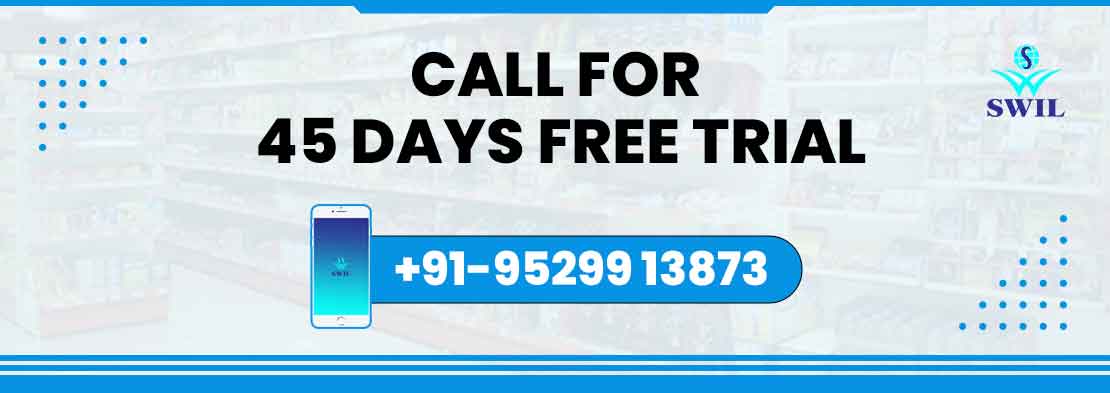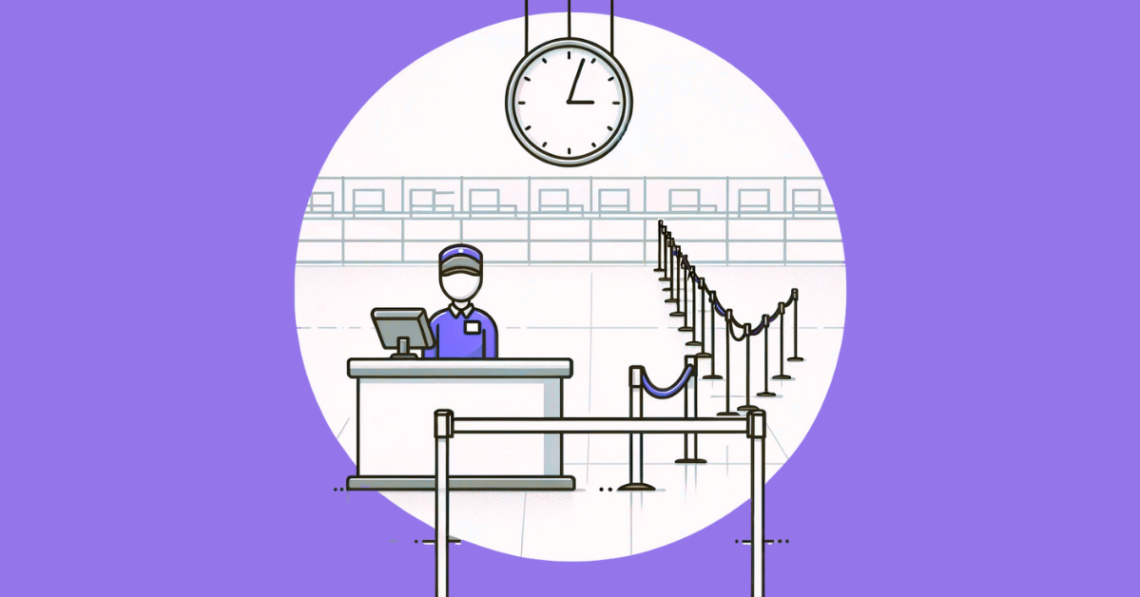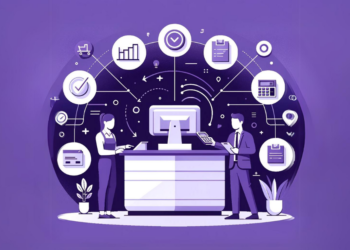Whatever business you are doing, which is most important, and around which your business strategy is determined, is the consumer. You cannot force your customer to choose things that are present in your store. If they are not satisfied with your product, services, they will look for another store. Thus, it becomes essential to have full research on customer purchases. Also, it is vital to evaluate the entire customer experience to enhance the working of your retail departmental store or store chains.
This blog will illustrate you with the departmental store challenges that store owner faces while running a departmental store or retail chains. Also, the startup gets to know about the common challenges faced by retailers while opening retail stores. Once you understand the challenges of opening a retail store, you will be able to plan your business accordingly.
Index…
- Challenge 1 : COVID-19 Prevention
- Challenge 2: Update as Market Trend
- Challenge 3: Efficient Marketing Infrastructure
- Challenge 4: Hiring Efficient Employees
- Challenge 5: Finding the Best Technology Solutions
- Challenge 6: Effective Cash Flow and Financial Management
- Challenge 7: Stock Management
- Challenge 8: Robust Billing System
- Challenge 9: Creating a Personalized Experience
- Challenge 10: Managing Multi-Location Store
- Frequently Asked Questions
Let’s know about the challenges that retailers have to face while opening or running a retail departmental store or store chains.
The retail industry is a real-time example of constant business transformation. Now, customers are more demanding. Their buying decisions depend upon the quality of the product, service, and overall experience. Knowing customer demand is a critical part of running a store, which requires extra effort to overcomes any business challenges. Let’s take a look at the challenges that affect departmental store operations.
Challenge 1: Prevention from COVID-19 Transmission
The entire year of 2020 went through the COVID-19 epidemic. Since this year, there have been many challenges ranging for departmental owners from contact-less service to home delivery options. Brick-and-mortar department stores followed normal shopping protocols before the epidemic. They were not ready for a major expansion of the use of technology. But they have to be adjusted to prevent coronavirus transmission. For this, the store owners will have to follow the following procedures-
- Limit the number of customers in the store
- Ensuring a proper distance between customers
- Implementing an easy and quick checkout process to avoid chaos in the store
- Implementing cashless payment to prevent the spread of viruses
- Ensuring that employees and customers are always wearing masks
- Maintaining the hygiene of your products
- Providing hand sanitizers and measuring the body temperature of customers entering your store
Thus, if you are not following such procedures or are not meeting the demands of time, you may face many operational or business challenges in the market. It can cause some major business losses, and you may have to close your business.
Challenge 2: Keeping up your departmental store with the market trend
Due to the non-adoption of technology, many department stores are ending up with major losses. The reason behind this failure is the store not using the latest products in the operation of its products as well as the use of traditional methods. Thus, keeping up with the trends ensures customers that they will receive smart and reliable service from you.
For department stores, which are still running their business with the brick-and-mortar concept, constantly changing with trends can be a tedious task. But not adopting it invites a loss in business because consumers lose interest in you and are looking for another place to shop. Thus, to get into the trend, you have to be technically equipped, as well as maintain your stocks.
Thus, if the shop does not follow the market trend, you will face the following consequences.
- You may not be able to discover new opportunities coming in the market. In this way, you are not aware of the buying patterns of changing consumer behavior.
- You may not be able to know your customers and their priority according to their buying patterns. In this way, you are not able to maintain your shares and make future business decisions.
- You may not be able to know your competitors and your position in the market. In this way, you lack the opportunity to upgrade your products and services.
Challenge 3: Efficient departmental store marketing infrastructure
Marketing is a crucial aspect of any kind or any size of business. Every stage of business requires a marketing strategy that enhances store sales and attracts new customers. An effective marketing strategy gives your business a detailed understanding and solution for your budget usage, marketing channels, linkage, and their functions. This way, you will have an idea to create maximum benefit from your departmental shop or shop chains. Thus, a well-organized infrastructure for smoothening the store operations is required. But, if your department store does not have a proper marketing infrastructure, you will have to face the following results.
- You are not able to show your customers the best services available to them. This increases the wrong marketing of store products.
- You may fail to know the company’s marketing needs, required capital, prospect reach, and accurate conversion-ratio estimates.
- You may lack an understanding of the market changes in the pattern of product delivery and usage.
- You cannot get the right cost for your products. In this way, gradually, you lose your business value and store reputation.
You may not be able to identify new statutory retail store requirements.
Challenge 4: Hiring efficient employees and staff for your departmental store
Incorrect selection of employees can make or break your business. Skilled workers are an important demand for any department store. They collectively benefit the business in sales and customer retention. Thus, the departmental store owner must find employees who are quick learners and skilled to achieve the organizational goal. They help retailers reduce the workload in managing the store. If you do not have skilled employees in your department store, here are some of the drawbacks that you will have to face.
- Your store staff is the first person who interacts with the customer and explains your product. By being an unskilled employee, you give your customer a chance to visit another retail outlet.
- You may face a decrease in sales because your employee knows less about your products and services.
Hiring the wrong employee makes a customer worse off.
Challenge 5: Finding the best technology solutions for your departmental store
In today’s competitive world, the departmental store needs to have a strategy that gives their business an overall efficiency. Without having the technical support, it is just an imagination as technology gives businesses a more prominent solution to bring speed, agility, and efficiency. By integrating with departmental store software solutions, you get a strategy that automates daily store tasks. With it, you can easily handle your customer data, fetch it any time, get real-time visibility on sales/purchase, billing, inventory management, and more. If your departmental store is not integrated with technology, then you will face the following problems in your store operation.
- You may not be able to provide a fast and secure checkout to your customer. It will create boredom for them, and they will think they wasting their time.
- You may not be able to get real-time stock information. It indicates inaccuracy in maintaining the inventory level.
- You may not be able to track your employee’s data and handle payroll management.
- You may not be prepare sales/purchase reports to plan more business opportunities.
- You may not be able to analyze your complex stocks and forecast efficiently.
- Your store may not be able to offer customers multiple payment options.
Challenge 6: Effective cash flow and financial management in store
Finance has an important place in any retail business. Good management of finance gives your departmental business strength for taking any risk. It calculates business profits for the long run and ensures consistent cash flow in the entire business. Thus, financial management and cash flow are important terms in business financial aspects. It covers departmental budgeting, forecasting, profit planning, leverage management, asset management, and optimum resource allocation. If you do not have the right financial and cash flow management in your business, then you will have to face the following results.
- You may not be able to track, adjust, and analyze the financial data of your departmental store.
- You may not be able to maintain the balance between cash inflows and cash outflows.
- Slowly or steadily, you reduce your grip on your business management, purchasing capability, and your employee’s satisfaction.
- You may not be able to pay your store bills on time. It decreases your departmental store credibility.
Challenge 7: Management of departmental store stocks
Maintaining the right set of stocks, the right amount of stocks, and the right quality of stocks is always a challenge for the departmental retail store owner. An incorrect stock with expiry or quality issues leads to customer dissatisfaction. Thus, it is necessary to have a management system that avoids any mess in managing the store inventory. A departmental store inventory management facilitates real-time information about which item is in stock or which is out of stock. If you do not have the right stock management system in your store, here are some results you will have to face.
- You receive incorrect data about your purchased products, misplaced products, returns, and stolen goods. Thus, you cannot track or update your inventory items correctly.
- You cannot identify inventory shrinkage. It leads to employee theft, supplier fraud, and unhappy customers.
- You are not able to organize the product on the shelves that creates mismanagement.
- You do not get prior notice of expiry products.
- You are not able to make future purchase decisions, face human errors, and lose the trust of customers.
Challenge 8: A robust departmental store billing system
Incorrect billing definitely leads to big business losses, especially when you are running a retail departmental store. If it is done manually, then it is a time-consuming process that more prone to error. Thus, an efficient billing system is essential for a departmental store or those businesses that have multiple store chains. It facilitates easy checkout with an enhanced efficiency level. Also, it keeps track of stocks and maintaining customer satisfaction. But, if the departmental store does not have a proper billing system, you will have to face the following negative result.
- You cannot facilitate your customers by offering multiple payment options.
- You may not be able to estimate or measure your revenue.
- You cannot provides invoice generation or quick bill.
- You cannot secure your payment procedures.
- In this way, the customer does not get an optimal shopping experience during the customer journey.
- You cannot easily make changes to recurring billing cycles.
Challenge 9: Creating a personalized experience in the store by establishing loyalty programs and discount management
For running a retail departmental store, store management must have a scheme that attracts more and more customers. That is why it is essential to provide personalized experiences to customers through different attractive programs. The aim of these programs has to attract customers towards your store and connect the customer with more personalization. So, it becomes easy with a software solution. They show business owners the right way to know what abilities to build to create a personal touch with users. If you do not establish the right loyalty programs and discount management in your business, here are some results you will have to face.
- You are not able to build a good relationship with your valued customers.
- You are unable to improve your customer satisfaction level.
- You are not able to create transparency in your departmental business. Thus, customers hesitate to shop with you.
- You are not able to make a unique offer for your valued customers.
Challenge 10: Managing multi-location departmental outlets
In this competitive market, every business owner wants to expand its business. The responsibility of business owners increases with business expansion. They need to manage the business in a good way and coordination between the stores. You need to expand staff, increase inventory levels, and smartly handle the entire business data. Thus, the right preparation is required to overcome the multi-location departmental store issues. If you do not have management procedures for multi-location outlets, you will have to face the following adverse situations.
- You may not be able to get centralized control over all your store chains.
- You are not aware of your sales, purchases, and financial condition of all store chains.
- You cannot communicate seamlessly with your employees.
- Your valued customers may suffer to receive services, as they always expect from you.
Bottom Line
In the retail, wholesale, or business chain market, various business solutions are available at different prices and with different specifications. But you always need to choose the best one that gives correct automation to your departmental store and should provide solutions based on departmental store problems. In this blog, we have discussed the top challenges faced by the department store. The information gives you a direction to find a better solution and prevents you to choose the wrong software option. We recommend that you choose software that is specifically built by developers who are experienced in developing retail outlets or retail chain industry software solutions. If you would like more solution-based information about departmental software, please follow our next attached blog series.
Frequently Asked Questions
Why do departmental stores need departmental store software?
A Departmental store software optimizes the store processes and gives the store accurate sales/ purchase, inventory, accounting, GST filling, and billing options. It helps retailers with easy, fast, and robust billing, eliminating long billing queues and ensuring fast checkouts.
What are the challenges involved in departmental stores?
It has to update as per Market Trend
The store needs to hire proficient staff.
The store needs to integrate with the best technology solution.
The store must have an accurate billing system.
The store has a robust inventory management system.
What are the features of an effective department store software?
Robust Billing Management
Order/Reorder Management System
Accounting & GST Filling
Barcode Management
Supply Chain Management
How to find the best software for a department store?
To find the best software for the department store, you need to know your business requirement and budget first. You can book your demo with SWIL RetailGraph software and benefit from its 45 days free trial.
Is multi-location store management possible with department store software?
Yes. RetailGraph departmental store management software can easily handle multi-location store management. With software, you can- Get centralized control over all your store chains
Aware of your sales, purchases, and financial condition of all store chains
Customers get their desired products easily
DIGITALIZE YOUR DEPARTMENTAL STORE WITH SWIL SOFTWARE SOLUTION











